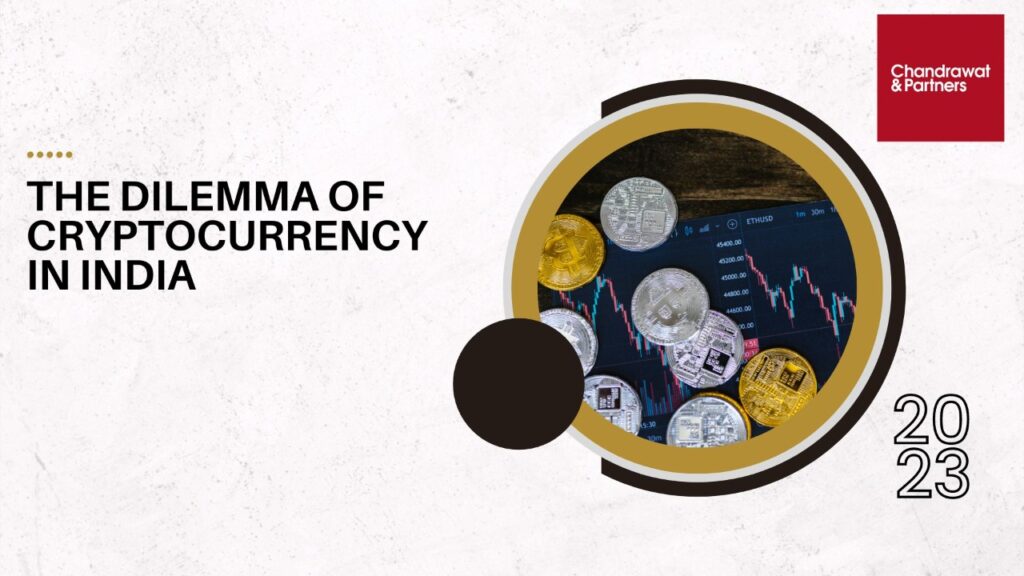Introduction to cryptocurrency
Cryptocurrencies are a form of digital currency based on blockchain technology, widely considered secure, decentralized and providing anonymity to its users, while using cryptography to secure the transaction records. It uses the technique of cryptography to secure its transactions. There is no central authority that determines the value of cryptocurrency instead its value is determined by its users on the internet.
Cryptocurrency is a digital payment system that does not rely on banks to verify transactions. It is a peer-to-peer system that can be used by anyone from anywhere to send and receive payments. Instead of being tangible money carried around and exchanged in the real world, cryptocurrency payments exist purely as digital entries in an online database describing specific transactions. When you transfer cryptocurrency funds, the transactions are recorded in a public ledger and stored in digital wallets.
The legality of cryptocurrency in India
There is currently no law governing cryptocurrency regulation, and the government’s position on cryptocurrency is unclear, as the proposed bill titled The Cryptocurrency and Regulation of Official Digital Currency Bill, 2021, is also pending in parliament. The bill is in the consultation stage and if passed, it will be the first step toward the regulation of the Virtual Digital Asset (VDA) industry.
However, some small steps have been previously taken by the government such as amending the income tax laws to enable the taxation of VDAs, and a national strategy on blockchain was released which strongly enables the development of national blockchain infrastructure. This is an attempt to create ‘Blockchain as a service throughout the country. From this, the objective is the integration of blockchain technologies at the infrastructure level and their compliance with legal statutes.
The Security Exchange Board of India (SEBI) also issued operational guidelines for the maintenance of information and to bring transparency to the cryptocurrency market. The Computer Emergency Response Team (CERT) operating under the Ministry of Information Technology issued directions to all virtual service providers to mandatorily maintain all information under Know your Customer (KYC).
From these regulations, it can be understood that although the government has not taken a stance on cryptocurrencies, they are not considered illegal.
Trading in cryptocurrency in India
A cryptocurrency exchange is a platform where users can trade cryptocurrencies for fiat money and buy and sell them. The primary technique for doing this is the use of a live order book. The live buy and sell orders that are shown in the order book have an immediate impact on the exchange rate of each cryptocurrency. Because each exchange sets its price depending on its trading volume, an exchange with more users is likely to have more prices that are pertinent to the market.
The crypto exchanges are further divided into two types –
- Centralized exchange- As the name implies, centralized cryptocurrency exchanges act as a middleman between buyers and sellers. Most cryptocurrency transactions take place on centralized exchanges, which provide more reliability. Centralized cryptocurrency exchanges include Biaffine, Coinbase, Gemini, and Kraken, to name a few.
- Decentralized exchange – it is a non-centralized exchange where several parties manage the assets. Smart contracts and decentralized apps are used to automate transactions and trades as opposed to conventional centralized exchanges. This is considered to be much safer, and some examples of decentralized exchanges are – Uniswap, Sushiswap, Curve, and Venus.
A way forward for cryptocurrency
Blockchain technology and cryptocurrency are still new methods of exchange for Indian investors, Indian banks and the Indian government. Based on the current market scenario, it can be concluded that the government wants to adopt this technology but does not want to risk it. Hence, a regulatory market is being set up by the government for the exchange of cryptocurrencies. which will be safer for the investors and also more regulatory for the government. No assumptions can be made while the bill is still pending in parliament, but based on the government’s actions, it can be deduced that there is a future market for crypto exchange in India.
For more information or queries, please email us at
[email protected]





